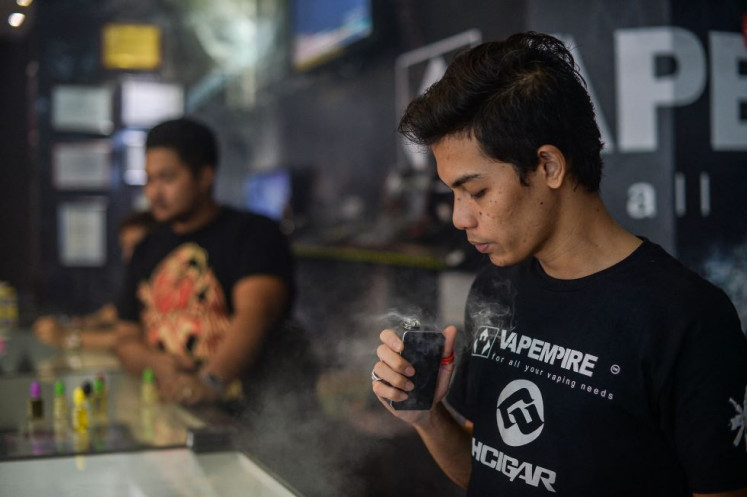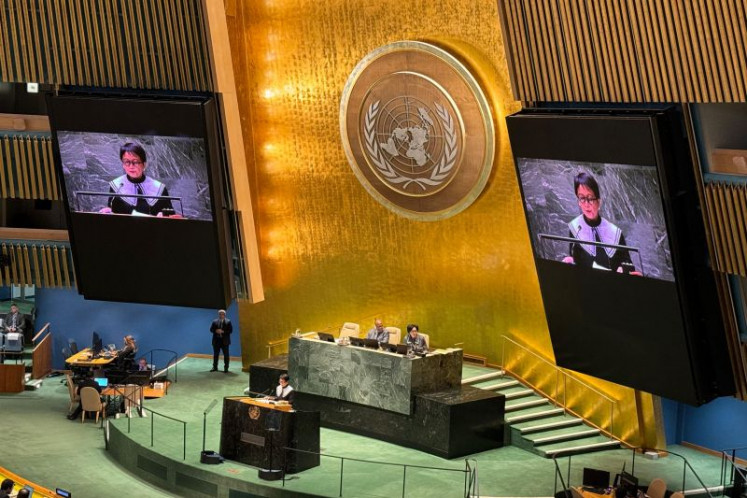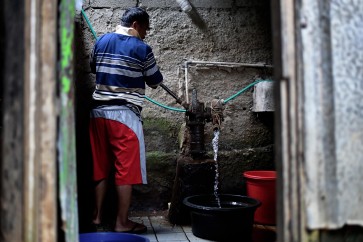Court rules to end water privatization: What next?
Apart from being exposed to diseases, women had said the low water supply made them spend extra time and energy to provide water for their households.
Change Size
 A man pumps freshwater from the ground at a public toilet in Jakarta on March 21, 2017, on the eve of World Water Day. (AFP/ Bay Ismoyo)
A man pumps freshwater from the ground at a public toilet in Jakarta on March 21, 2017, on the eve of World Water Day. (AFP/ Bay Ismoyo)
O
ver the last two decades since the water supply in Jakarta was privatized, the poor and the most marginalized have only been able to access this irregular, dirty and contaminated water supply with one of the highest water prices in Southeast Asia. Jakarta has been facing a water crisis, which some experts estimate will implode by 2025.
In 2015, the NGO Solidaritas Perempuan (Women’s Solidarity) spoke to women from all of Jakarta’s five districts to document the impacts of this public private partnership (PPP) on women.
The water condition led to many women experiencing skin diseases and reproductive health disorders. All the while, the two corporations involved in this partnership, PT PAM Lyonnaise
Jaya (Palyja) and PT Aetra Air Jakarta, were making considerable profits.
The landmark Supreme Court ruling of April 2017, made public in October 2017, reaffirms what the Coalition of Jakarta Residents Opposing Water Privatization (KMMSAJ) and the women and communities have been saying — that privatizing an important resource like water violates human rights and erodes the government’s obligations to deliver basic human rights to its citizens.
The Supreme Court demanded the government reverse privatization of water in the capital, emphasizing that water is a human right enshrined in the International Covenant on Economic, Social and Cultural Rights, already ratified by Indonesia.
International human rights law, the activism of civil society and the judiciary in this case have come together to safeguard the right to water.
















